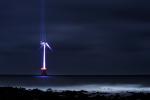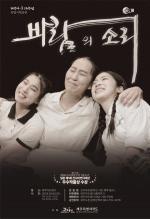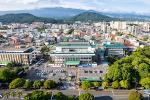- Incoming JPI President looks to spread institute’s wings in seventh year
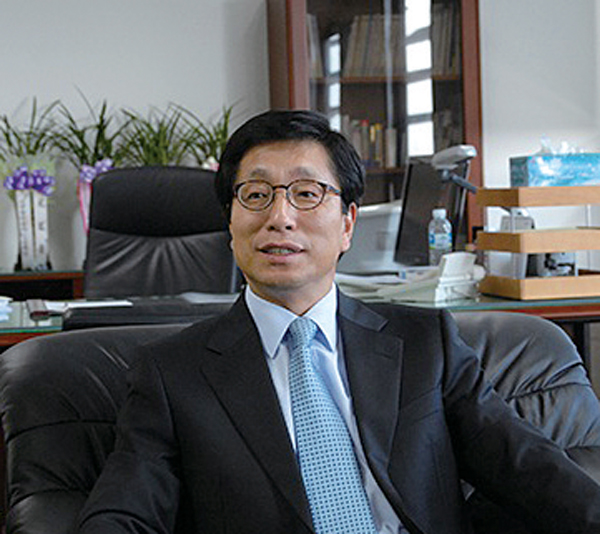 |
||
| ▲ Incoming JPI President Moon | ||
With ongoing conflict at Gangjeong Village, the moniker “Island of World Peace” is something of an albatross around the neck of Jeju. It was a seed sown back in 1991, after President Gorbachev - visiting Jeju - became the first Soviet Head of State to set foot in S. Korea. Little known on the international stage, the island sought to further its peace-building credentials.
Eight years later, in Dec. 1999, Jeju was ambitiously declared a Free International City, and an Island of World Peace. The people of Jeju quickly went to work to build the institutes to make it a reality.
The Jeju Peace Institute is one such institute. Founded in 2006, it is now regarded among the top ten research institutes in the country, and new man at the helm, President Moon Tae-young, aims to hit the top five by year-end. Moon has had an illustrious 35-year career as a diplomat - he was the Korean Ambassador to both Germany and Panama - but after visiting Jeju on honeymoon in 1979 he was left charmed and dreamt of settling on the island.
“I was very happy when I was appointed as the new President of JPI, because my wife and I had wanted to live in Jeju Island. I applied for the post of the Advisory Ambassador to the Jeju Special Self-governing Province Government six years ago, but failed. I gave up the hope of living in Jeju Island, but eventually my dream came true,” said Moon.
Having achieved his ambition, Moon is now tackling the herculean task of building peace in East Asia. With continuing territorial disputes in the region and a faltering global economy heightening tensions, the burden to achieve peace is being acutely felt by peacebuilders. Moon sees this as all the more reason JPI should act as a platform for cooperation.
“It’s been almost seven years since JPI was founded. It’s time for JPI to prepare a long term development strategy,” Moon said. “The future of JPI can be summarized with ‘Peace and Prosperity through Cooperation’. JPI was founded to realize regional peace and economic prosperity in the process of overcoming the historical burden in East Asia,” he added.
Perhaps the most notable of all the initiatives of the JPI is the now annual Jeju Forum. Entering its twelfth year - having begun under the Jeju Development Institute - it is broadening its scope from peace, to include economics, environment and culture. Moon is clear that this should in no way be seen as a reflection of the limited marketability of peace.
“You may assume the broadening of the agenda will cause the loss of our brand identity as a Peace Forum, which has been well accumulated for the last 12 years. However, we expect that we could rather reinforce the identity than lose it through this change. The challenges and paradigm of our times are in a state of flux and totally different from the ones when the Forum was first started in 2001. We cannot rely on the frameworks of the past. I think peace issues should be dealt with in a comprehensive way, which includes environmental, gender, economical and cultural aspects,” said Moon.
Moon further stressed the conceptual link between economic development and peace.
“In this context, we changed the name of the forum to ‘Jeju Forum for Peace and Prosperity’ by adding ‘prosperity’, and broadening agendas accordingly. Both peace and economic development are important for the region. Peace without prosperity is not viable. We can achieve both of them without sacrificing [either],” said Moon.
The upcoming 2013 Forum has been billed ‘Making New Waves in Asia,’ in recognition of the sweeping changes on the continent. The event seeks to crest these waves of change and ensure that political flux throughout the region does not lead to further fragmentation.
“We define these changes as “New Waves”... It is a reflection of the reality that Asia is initiating new initiatives in many fields, such as politics, economy, culture and environment. We think it is a timely and inclusive theme for various agendas. The year 2013 can be defined as a year of political transition. The regime changes in major countries, such as the US, Japan, China, Russia and two Koreas have been completed. We don’t know that the changes in balance of power in the region will bring about changes in the international order of the Asia-Pacific area as well,” Moon said.
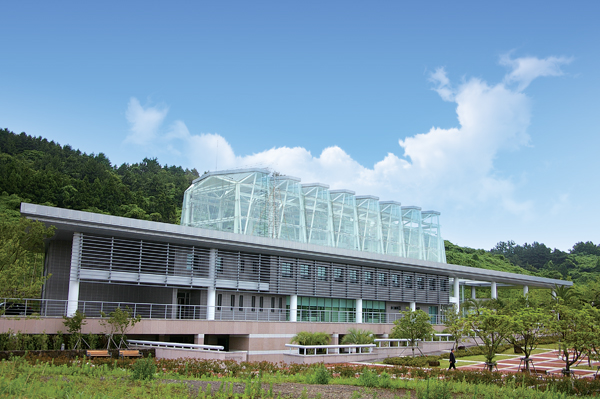 |
||
| ▲ In its seventh year, the Jeju Peace Institute in Seogwipo City is looking to build on its past successes under President Moon Photo courtesy JPI | ||
“JPI, as a research institute, has produced ideas for peace through academic papers and policy reports. Among them, “JPI Policy Forum” and “JPI Peace Net” have delivered the effective advertizing impact over the international as well as the domestic academic community,” said Moon.
In a knowledge economy, know-how and expertise are crucial commodities not only for economic growth, but also for the keeping of peace. Dialogue between the nations of East Asia is fundamental to a conflict-free region and the JPI measures its success accordingly.
Reflecting on the JPI’s collaborative research with scholars and partners worldwide, Moon concisely added: “the more participants join in the dialogue, the more peaceful ideas we can share.”
Darren Southcott editor@jejuweekly.com

